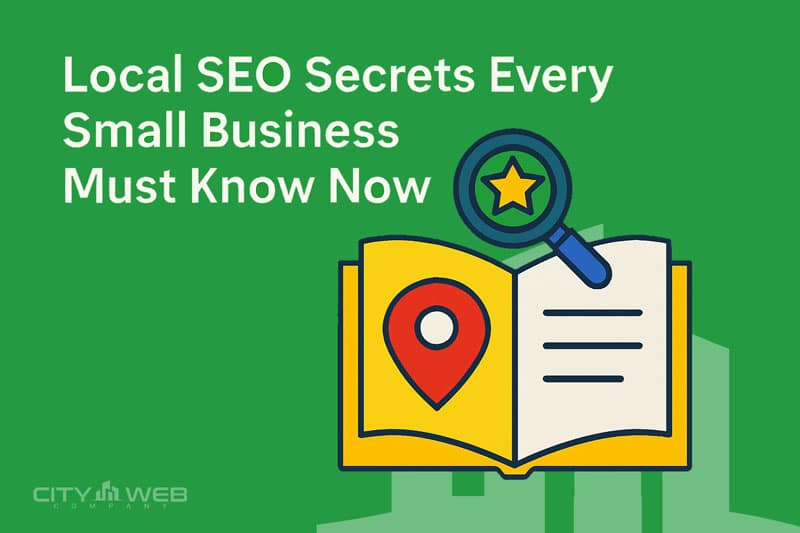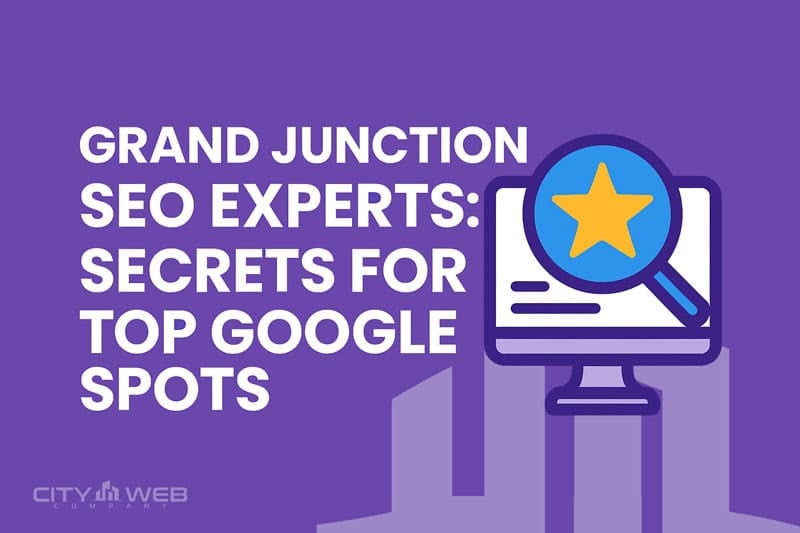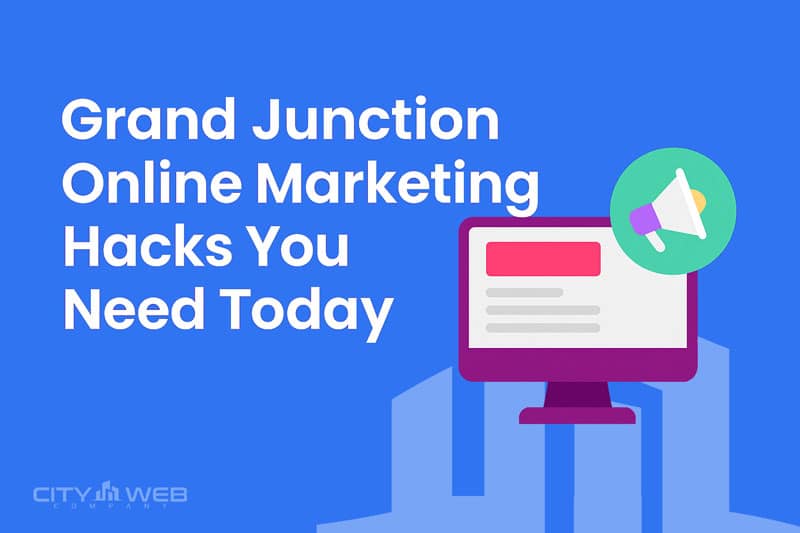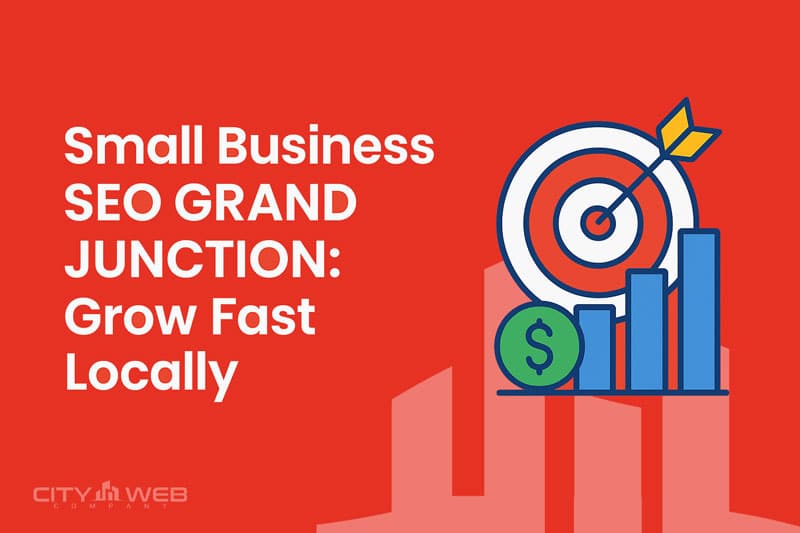Startling fact: Over 93% of all online experiences begin with a search engine. Imagine your…
Local SEO Secrets Every Small Business Must Know Now
Did you know that nearly 78% of local mobile searches result in an offline sale? If your business isn’t showing up at the top of local search results, and in front of customers ready to buy, you’re handing revenue to your competitors. Master these local SEO secrets and you’ll not only drive more foot traffic but also secure loyal, high-value customers who live and work right in your backyard.
Table of Contents
Unlocking Success: Why Local SEO Is the Game-Changer for Small Business
For any small business , local SEO is the ultimate cheat code to outpace bigger competitors without spending a fortune. Local SEO strategies put your business on the map literally by ensuring you appear in Google Search, Google Maps, and the coveted “local pack.” A recent study found that almost 80% of mobile searches with local intent convert into purchases, underlining the real-world impact of local search optimization.
Local SEO success isn’t about national conquest – it’s about dominating your neighborhood. By appearing high in local ranking, you connect with searchers who are ready to visit your shop, call your phone number, or book online. With effective SEO tools and a smart SEO strategy, small businesses can far outshine even giant competitors in their own local area. The result? Increased local rank, visibility, and profits, all with a highly targeted approach.

- What You’ll Discover In This Guide:
- How local SEO impacts small business growth and local ranking
- Insider strategies for optimizing your Google Business Profile
- Critical local SEO tools every local business must use
- Ranking factors that drive local search results
- Actionable steps to supercharge your local SEO strategy
“Nearly 78% of local mobile searches result in an offline sale—ignoring local SEO is not an option for any local business.”
Understanding Local SEO: What It Means for Every Small Business
Defining Local SEO and Its Role in Small Business Growth
Local SEO is a specialized branch of search engine optimization focused on increasing a small business’s visibility in geographically related search queries. It allows businesses to connect with potential customers searching for products or services within their city, neighborhood, or even their street. By optimizing your online presence for local keywords , maintaining accurate business info , and collecting reviews, you ensure your company surfaces in the “local pack,” Google Maps, and other key local platforms.
The impact of local SEO on business growth cannot be overstated. For many small businesses, the majority of revenue comes from their immediate community. Optimizing for local search lets you reach these high-intent customers right at the decision-making moment, elevating both your online presence and your bottom line.
How Local SEO Differs from Traditional Search Engine Optimization
While traditional SEO focuses on national or global search results, local SEO zeroes in on attracting nearby customers and does so in unique ways. Core methods include optimizing your Google Business Profile , encouraging local reviews, acquiring local citations, and using location-specific keywords . The ranking factors for local SEO also put far more emphasis on proximity, relevance, and prominence (like review quality), compared to traditional SEO’s heavier reliance on backlinks or content length.
Leveraging the right mix of local SEO tools , businesses can track which keywords trigger their Google Map listing or Local Pack appearances, giving immediate feedback on what’s working locally. Differentiating your approach is critical: while both types of SEO seek visibility in search engines, local SEO is all about being the go-to business for customers “near me.”
Why Local Search Is the Lifeblood of Local Businesses
For a local business , surviving in a digital-first world means being visible when customers search nearby. Local search bridges the gap between online research and offline buying decisions. Nearly 90% of shoppers search online before visiting a physical location, meaning your local search strategy directly influences your foot traffic and sales.
If your business ranks high in local search results , you’re not just increasing website visits—you’re motivating local shoppers to visit your storefront, call your business, and leave positive reviews. As voice search and mobile searching become more prevalent, dominant local search positioning is no longer optional—it’s crucial for longevity and growth.
The Local SEO Landscape: Core Concepts for Small Business Success
The Importance of Local Search Results and Local Ranking
Local search results display businesses that meet local intent queries like “pizza near me,” impacting which businesses get seen—and visited—by local consumers. Local ranking is determined by several factors: the accuracy of your business listing, reviews, citations, on-page signals, and more. As a small business , your goal is to climb those rankings and appear in the “3-pack”—the top three map-based listings shown above organic results.
High local rankings directly correlate with more customer visits and higher sales conversions. By doubling down on local ranking factors—such as boosting your Google reviews, maintaining consistent NAP (name, address, phone number), and using local seo tools – businesses can ensure they’re found at each crucial stage of the local customer journey.
One of the most critical yet often underestimated elements in achieving strong local rankings is maintaining consistent NAP (Name, Address, Phone number) citations across all platforms. If you want a deeper dive into why NAP consistency is so vital and how to implement it effectively, explore this comprehensive guide on the importance of consistent NAP citations for local SEO .
Local Packs, Google Maps, and the Power of the Local Map Pack
The local pack is Google’s prized set of three local business listings marked on a map, featured at the top of the search results when users make a local intent search. Showing up in the local pack means massive exposure and a spike in both online and offline traffic. To achieve this, optimizing your Google Business Profile , collecting glowing reviews, and accurate business info are mission critical.
Google Maps itself is now a powerful platform for discovery. More than just navigation, it serves as a business directory, a review aggregator, and a lead generator. For small businesses, getting visibility on Google Maps by leveraging the right seo tools and strategies directly impacts consumer trust and choices in the local marketplace.
Key Ranking Factors Driving Your Local Rank in Search
Climbing the local rankings starts with understanding the core ranking factors. Google weighs these factors heavily: your business profile’s accuracy, the number and quality of local reviews, the spread and consistency of your citations, and the depth of your on-page signals, like locally relevant content and smartly placed local keywords .
Utilizing a robust local seo strategy – including the right SEO tools, directory management, and review generation – ensures you address each ranking factor that matters to search engines. The more signals you send about your business’s location and credibility, the better your chances of claiming top local rankings and outpacing competitors.
| Ranking Factors for Local SEO Success | ||
| Ranking Factor | Impact on Local Ranking | Practical Tips |
|---|---|---|
| Google Business Profile | Very High | Keep info accurate, post often |
| Local Reviews | High | Encourage, monitor, and respond |
| Local Citations | Medium | Use consistent NAP across sites |
| On-page Signals | Medium | Use local keywords, optimize |
Google Business Profile Optimization: Supercharge Your Local SEO for Small Business
Step-by-Step Guide to Claiming and Optimizing Your Google Business Profile
Your journey to local SEO domination begins with claiming and optimizing your Google Business Profile (GBP). Start by finding or claiming your listing through Google, verify your ownership (often by postcard, phone number, or email), and then ensure every detail is complete and accurate. This includes your business name, address, phone, category, and hours.
- Checklist for Success:
- Complete business info (NAP, categories, hours)
- Add high-quality photos and videos
- Collect and respond to reviews
- Post regular updates
- Use Google Maps features
Remember, regular GBP updates: photos, posts, and special offers, all increase engagement and fuel better local rankings. Make your listing robust, accurate, and appealing to not only snare those valuable search impressions but also to convert them into lifelong local customers.
Meta Data, Business Info, and Images: Maximizing Your Search Engine Visibility
The foundation of an irresistible Business Profile is compelling meta data, detailed business info , and rich media. Title tags, meta descriptions, and headers packed with relevant local keywords help search engines understand your services and your service area, lifting your local ranking for high-value queries. Ensure your NAP details exactly match across every web property and directory.
Images and videos don’t just showcase your brand—they can help you rank higher and convert searchers faster. Use authentic, professional photos of your store, products, staff, and happy customers. Geotagging images and consistently updating media sends strong signals to search engines that your business is active, trustworthy, and authoritative in your local area.

How to Leverage Google Maps and The Local Pack
Maximizing your presence on Google Maps and in the local pack starts with full Business Profile optimization, but successful businesses go beyond the basics. Add service areas, encourage customers to check in or upload photos, and interact with questions or reviews directly on the platform.
Google heavily favors businesses that show signs of customer engagement—so reply promptly to reviews, keep your listings updated, and use Google Posts for promotions or news. This kind of activity increases your map-based visibility and puts you firmly in the running for that coveted local pack placement, where user clicks skyrocket.
Mastering Local Keywords: The Foundation of Local SEO for Small Business
How to Research and Choose Effective Local Keywords
Building your local SEO strategy starts with researching the right local keywords . Use a dedicated SEO tool like Google Keyword Planner, Moz, or SEMrush to discover what terms potential customers use when they search for your products or services in your area. Enter phrases like “pet groomer in [your city]” or “best Thai restaurant near [neighborhood]” these phrases represent commercial intent and high conversion likelihood.
Analyze search volume and competition for each keyword, prioritizing ones with strong local intent and manageable difficulty. Don’t underestimate hyperlocal keywords; sometimes, a nearby landmark or suburb brings in highly motivated customers, especially on mobile and voice searches. A blend of broad and niche local keywords is best for comprehensive local search visibility.

On-Page Optimization: Placing Local Keywords for Search Results and Local Ranking
After selecting your target local keywords , it’s time for on-page optimization. Naturally incorporate these keywords into your page titles, headings, meta descriptions, image alt tags, and page content. Make sure every landing page references your city, neighborhood, and service offerings to establish clear local relevance for both users and search engines.
Quote: “Adding city and service-specific keywords to headers and meta tags can boost local rankings by up to 40%.”
Put extra care into localizing your calls to action, testimonials, and FAQs—these signals boost trust and local authority, helping you climb the local search results more quickly.
The Power of Local Citations and Business Directories in Enhancing Local Ranking
What Are Local Citations and Why Do They Matter for Small Business?
Local citations are mentions of your business’s name, address, and phone number (NAP) across the internet—think online directories, social media profiles, and news articles. These citations validate your business’s existence and help search engines confirm your legitimacy and physical location. For small business owners, consistent citations across the web are a fundamental local SEO building block.
Citations are a powerful ranking factor in local search. When major directories—from Google Business Profile to Yelp and Bing Places—carry your correct details, search engines gain more confidence in serving your business to local searchers, improving your local ranking .
Top Business Directories Every Local Business Should Join
Not all directories are created equal. Some, like Google Business Profile and Yelp, have massive consumer trust and influence local search results directly. Others, like industry-specific directories, can drive targeted traffic and additional local citations. Make sure your business snags listings in both general and niche directories for maximum local SEO impact.

- Directories Checklist:
- Google Business Profile
- Yelp
- Bing Places
- Foursquare
- Industry-specific directories
NAP Consistency: Ensuring Your Business Info Is Accurate Across the Web
NAP consistency means your business name, address, and phone number are identical in every listing, review site, and directory. Even a minor typo or an outdated phone number can confuse customers and tank your local rankings . Use SEO tools like Moz Local or BrightLocal to monitor and manage your citations at scale.
Frequent audits of your citations are non-negotiable—especially if your business moves, changes phone numbers, or expands to new locations. This precision boosts your search engine trust, improves your local ranking, and prevents losing leads to outdated info.
Review Management Strategies for Local SEO and Small Business Reputation
How Customer Reviews Influence Local Ranking and Local Search
Online reviews play a crucial role in both attracting new customers and influencing Google’s local ranking algorithm. Search engines reward active profiles with substantial positive feedback, so every new review acts as a trust signal. For local businesses , high review ratings can set you apart in the local pack and dramatically increase the flow of customers from online search to your physical location.

Remember, it’s not only the number of reviews that counts but also the consistency, quality, and recency. Reviews that mention local keywords or specifics about your business category further supercharge your visibility and trust.
Proven Tactics for Generating and Responding to Reviews
Successful review management starts with a proactive mindset. Make it easy for satisfied customers to leave feedback by providing links (on receipts, business cards, or in follow-up emails). Gently ask for reviews at point-of-sale, or incentivize with loyalty programs or special offers. Don’t forget to respond quickly and thoughtfully to every review—each reply signals to both potential customers and search engines that you value feedback.
Encourage your team to embrace reviews as a part of the customer journey and not just a bonus. Thank reviewers, address concerns, and resolve issues offline when possible, showing your authenticity and service commitment.
Practical Steps to Handle Negative Reviews—While Boosting Local Rank
Negative reviews are inevitable, but they don’t have to hurt your local ranking if handled correctly. Prompt responses, a professional tone, and taking constructive feedback seriously can actually strengthen your reputation. Use each negative review as an opportunity to demonstrate your commitment to customer service and address legitimate issues.
“Responding to reviews—positive or negative—shows engagement and can increase client trust by 70%.”
Transparency and swift resolution often earn respect and can turn a dissatisfied customer into a lifelong supporter—all while sending positive engagement signals to search engines.
Local SEO Tools and SEO Strategy: Boosting Your Local Rank with the Right Resources
Top Local SEO Tools Every Small Business Should Use
The right SEO tools are a game-changer for your local SEO strategy. Tools like Google Search Console, Moz Local, BrightLocal, SEMrush, and Whitespark help you audit citations, monitor rankings, benchmark competitors, and find new local keywords . By analyzing your online presence and pinpointing weaknesses, these tools empower smarter decisions and sustained local ranking growth.

- Essential Local SEO Tools:
- Google Search Console
- Moz Local
- BrightLocal
- SEMrush
- Whitespark
Small businesses with limited resources can start with free tools (Google Business Profile, Search Console) and level up with premium options as their local SEO strategy matures.
How to Track, Measure, and Improve Your Local SEO Performance
Knowing what to measure—and how—is essential to continual improvement. Track your business’s local ranking progress using dashboards inside your chosen SEO tool . Keep an eye on local keyword rankings, review counts, and Google Business Profile analytics (calls, directions, website clicks). These KPIs tell you what’s working and what needs refinement.
Use data from these tools to drive action: update underperforming pages with better local keywords, ask recent customers for reviews, or fix any inconsistent business info across major directories. Schedule regular audits and competitive checks—winning in local search requires relentlessly keeping your information accurate and your digital footprint growing.
Advanced Local SEO Strategies: Staying Ahead in Local Search Results
Leveraging Structured Data and Schema Markup for Local Businesses
Structured data and schema markup help search engines easily understand your local business details. Adding local business schema to your website feeds Google information about your name, address, phone number, hours of operation, and more, boosting both your visibility and “trust” signals in local search. Implement schema using simple markup plugins or tools like Google’s Structured Data Markup Helper.
The payoff? More accurate business listings, eligibility for rich snippets, and a stronger shot at winning prime search results real estate—including the local pack and knowledge panels.
Proven Content Strategies for Local Search Dominance
Creating hyper-localized content is a proven way to expand your authority and capture additional traffic. Write blog posts about local events, customer stories, or neighborhood news. Showcase partnerships with other local businesses and include plenty of local keywords and phrases in every post and meta tag.

Get creative: feature local customer testimonials, run seasonal promotions, or answer frequently asked questions about your area. The more you embed local context, the more likely search engines (and potential customers) will recognize you as a community leader.
Building High-Quality Backlinks for Sustainable Local Ranking
Earning high-quality backlinks remains a powerful ranking factor for both traditional and local SEO . To build relevant local links, connect with local news outlets, host community or charity events, sponsor sports teams, and exchange guest posts with other neighborhood business owners . Each local link increases your authority and signals relevance to search engines.
- Tactics for Advanced Optimization:
- Create localized blog and landing pages
- Host community events
- Partner with local influencers
Over time, this local link-building effort boosts your local ranking defensibly and sustainably—opening the door to more discovery, traffic, and sales.
Mobile Optimization for Local SEO: Capturing On-the-Go Customers
The Rise of Mobile Search for Local Businesses
Mobile devices drive the lion’s share of local searches —often with the intent to take immediate action. People searching for “restaurants near me” or “emergency plumber nearby” are ready to convert, making a seamless mobile experience vital for any small business with local ambitions.
If your website isn’t mobile-friendly, you risk missing out on customers who will simply move on to faster competitors. Google also now ranks sites with better mobile experiences higher in local search results, making mobile optimization a must-have, not a bonus.
Mobile-First Best Practices to Boost Search Engine Rankings
A mobile-first approach requires responsive web design, fast load times, easy navigation, and tap-to-call functionality. Make sure your NAP info, map location, and business hours are front and center on mobile pages. Use Google’s Mobile-Friendly Test and PageSpeed Insights (both reliable seo tools ) to audit your performance and implement recommended changes.
Optimize Google Business Profile posts and photos for mobile viewing, and ensure your site is structured for voice search queries, which are increasingly local in nature. These tweaks will not only improve local search rankings, they’ll also boost user satisfaction and conversions.
Why Google Maps and Local Search Go Hand-in-Hand for Small Business
Google Maps has become the default tool for discovering local businesses, finding directions, and checking reviews or hours. Dominating on Maps requires maintaining a complete, accurate, and engaging Google Business Profile—this tight integration with local search means updates made in your profile can instantly boost your visibility and draw more customers.
Appearing prominently on Maps aligns your brand with trust and convenience in the eyes of potential customers. Combined with stellar reviews, current media, and regular engagement, Google Maps can be your strongest channel for in-person sales and appointments.
Analytics: Measuring and Improving Your Local SEO Results
Key Performance Indicators for Local SEO Success
Tracking key performance indicators (KPIs) is essential for evaluating your local SEO strategy. Leading metrics include your local ranking position, website traffic from search, Google Business interactions (calls, messages, direction requests), number of reviews, and local keyword rankings. Regular assessment pinpoints new opportunities and quickly reveals problem areas.
Benchmark KPIs against your competitors using seo tools like BrightLocal or SEMrush. This comparative data guides your investments in content, citations, or review efforts, ensuring you always stay ahead in the local search competition.
How to Use SEO Tools to Interpret Local Ranking Data
Advanced SEO tools provide robust analytics dashboards that turn raw data into actionable insights. Use Moz Local, SEMrush, or Google Search Console to identify trends, track visibility for crucial local keywords , and monitor citation accuracy or review velocity.
| Local SEO Metrics: Tools and Action Steps | ||
| Metric | Tool to Track | Action Step |
|---|---|---|
| Local Ranking | BrightLocal | Improve NAP, gather more reviews |
| Keyword Visibility | SEMrush, Moz Local | Optimize pages for local keywords |
| Google Business Insights | GBP Dashboard | Track calls, clicks, directions |
Act on insights by doubling down on local content creation, citation updates, technical fixes, and review campaigns. Data-driven decisions fuel ongoing local SEO growth.
Local SEO Case Study: How Real Small Businesses Achieved #1 Local Rank
- Case Study Highlights:
- Problem: Poor local ranking, low Google Maps visibility
- Solution: Comprehensive local SEO strategy
- Results: 5x increase in local search traffic, 3x more customer inquiries
Consider a small cafe struggling to appear in local searches despite excellent service. By fully optimizing their Google Business Profile, streamlining NAP consistency across directories, launching a review drive, and writing blog posts about local events, they leaped from the third page to the top local pack positions. The result was a dramatic increase in foot traffic and repeat business—proving that strategic local SEO delivers tangible, bottom-line results.
Troubleshooting: Overcoming Common Local SEO Challenges for Small Business
- Top Issues and Solutions:
- Inaccurate business info: Audit and fix listings
- Negative reviews: Respond promptly, encourage positive feedback
- Dropping in rankings: Check NAP consistency, optimize for new keywords
Every local business faces hurdles, whether it’s a slip in local rankings, a mistaken phone number circulating online, or a rash of harsh reviews. The solution? Systematic audits, prompt engagement, and a willingness to evolve your local SEO strategy. Use seo tools to monitor your performance and take proactive steps as soon as red flags appear.
People Also Ask: Local SEO Insights for Small Business Owners
Is doing a local SEO worth it?
“Yes, local SEO offers one of the highest ROIs for small business marketing, driving local customers directly to your doors.”
Absolutely! Local SEO helps connect your small business with high-intent buyers in your area. The payoff is a faster path to higher local rankings, more sales, and a stronger community presence. Neglecting local SEO often means letting competitors take the lion’s share of nearby customers.
Is local SEO free?
- While you can start optimizing local SEO at no cost using tools like Google Business Profile, investing in professional services and advanced SEO tools can amplify your results.
Many local SEO efforts are free or low-cost—claiming your profiles and building citations costs only your time. However, specialized SEO tools and professional help can accelerate or expand your results.
Is local SEO profitable?
“Local SEO can drive exponential profit growth—local businesses often see an ROI exceeding 200% within the first year of strategic optimization.”
Local SEO is one of the most profitable and scalable marketing channels for small businesses. Not only does it bring in targeted customers, but it also builds lasting credibility and recurring sales.
How much does a local SEO cost?
- Local SEO costs can range from zero (DIY) to $300-$2000 per month depending on the complexity, competition, and tools or experts involved.
Your budget depends on whether you handle tasks in-house or hire experts. DIY local SEO can be free aside from time; professional agency solutions cost more but may deliver faster ROI.
Frequently Asked Questions about Local SEO for Small Businesses
- How long does it take for local SEO efforts to show results?
- Most businesses see measurable improvements within 3 to 6 months, but highly competitive markets may take longer. Consistency and regular updates accelerate progress.
- Can local SEO help multi-location businesses?
- Yes—multi-location companies benefit from local SEO by optimizing separate Google Business Profiles, location landing pages, and citations for each branch.
- Is it possible to rank in the Local Pack without a physical address?
- Service-area businesses can still appear in the Local Pack by listing their service area and following Google’s guidelines—even if they don’t publicly display an address.
- Do social media signals influence local ranking?
- Indirectly, yes. Active social media engagement can boost brand mentions and drive review activity, supporting broader local SEO signals.
Next Steps: Take Your Local SEO and Small Business to the Next Level
- Schedule Free Discovery Call Now: https://citywebcompany.com/contact/
- Get a Free Google Business Profile Audit Now: https://citywebcompany.com/google-business-profile-optimization-services/
Recap: Essential Local SEO Strategies Every Small Business Should Implement Now
- Key Takeaways:
- Local SEO is critical for small business growth and visibility in local search results
- Google Business Profile optimization and review management drive local ranking
- Using the right SEO tools streamlines success
- Continuous optimization and analytics are essential for staying on top
Ready to Elevate Your Local Rank? Supercharge Your Small Business with Proven Local SEO Strategies Today!
Take action now —book your free consultation or Google Business Profile audit and start climbing the local ranks. Your next loyal customer is searching for you right now!
If you’re ready to put these local SEO secrets into action and want a more comprehensive approach tailored to your business, don’t miss our in-depth overview of local SEO services designed specifically for small businesses . Discover how expert strategies, hands-on support, and advanced optimization can accelerate your growth and help you outpace the competition. Whether you’re just starting or looking to refine your current efforts, this resource will guide you through the next steps for sustainable local visibility. Take your local marketing to the next level and unlock even greater results for your business.
Sources
- Moz – https://moz.com/learn/seo/local
- Search Engine Land – https://searchengineland.com/guide/what-is-local-seo
- BrightLocal – https://www.brightlocal.com/learn/local-seo/
- SEMrush – https://www.semrush.com/blog/local-seo/
- Google Business Profile Help – https://support.google.com/business/answer/7091?hl=en
To further enhance your understanding of local SEO and its impact on small businesses, consider exploring the following resources:
- “What Is Local SEO? Guide to Ranking in Local Search Results” : This comprehensive guide delves into the fundamentals of local SEO, explaining how it works and why it’s vital for businesses aiming to increase their online visibility within specific geographic areas. ( searchengineland.com )
- “Local SEO: The Complete Guide” : This resource offers a step-by-step approach to implementing local SEO strategies, covering essential topics such as optimizing your Google Business Profile, conducting local keyword research, and building local backlinks to improve your search rankings. ( ahrefs.com )
By delving into these guides, you’ll gain actionable insights and practical steps to effectively implement local SEO strategies, ultimately driving more foot traffic and securing loyal, high-value customers in your community.





